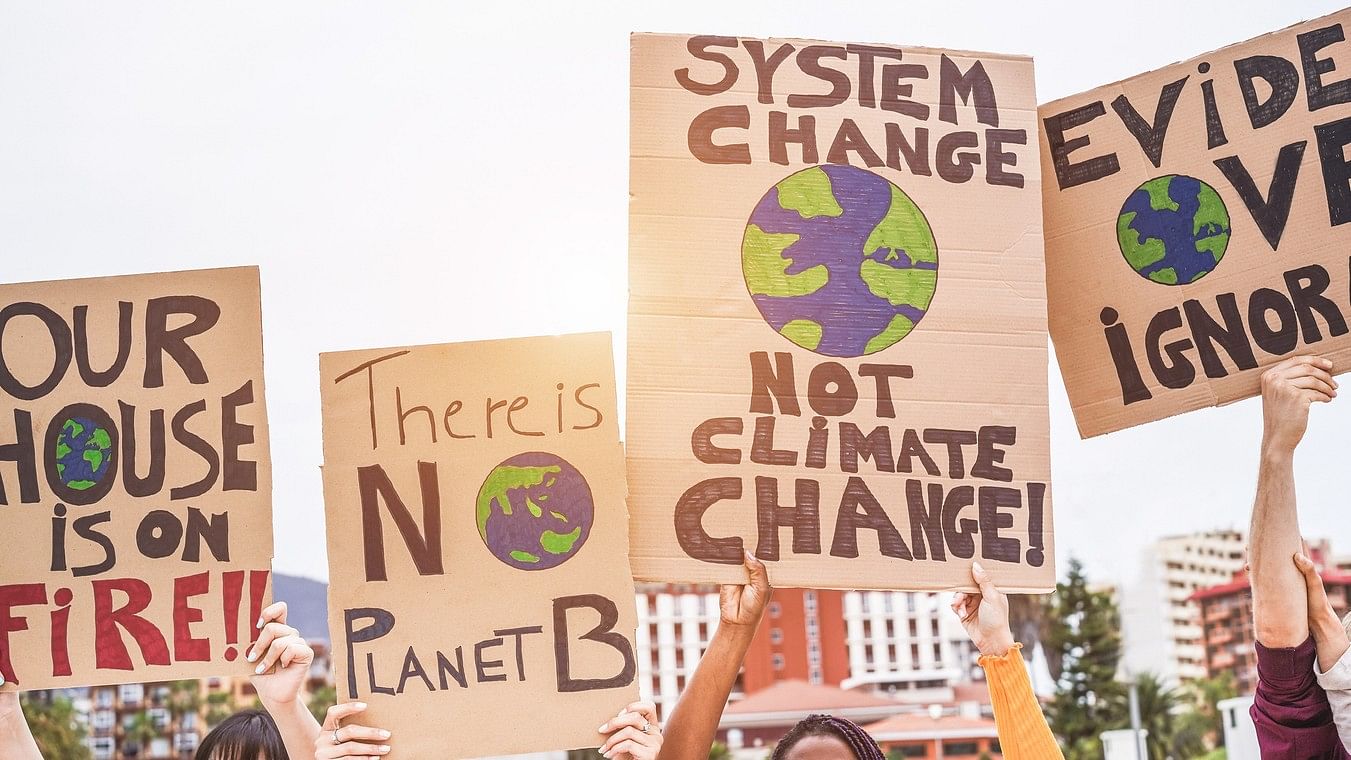
India is grappling with a significant increase in both natural and man-made disasters, posing a threat to the economy, population, and long-term sustainable development.
(Representative image)
Credit: iStock Photo
Bengaluru: Even as social media and news is fraught with posts on collapsed roads and bridges, a survey done by the South Asia arm of global realty consultancy, CBRE, has found nearly 50 per cent of India’s public infrastructure to be vulnerable to climate change and urbanisation.
The survey done on select large infrastructure asset using risk management parameters found the country ill-prepared to handle disasters be it natural or man-made. The report underscored the rising cost of undermanaged risks and losses they portend, especially as infrastructure projects get larger and more complex.
Presenting the findings of the survey at a conference on ‘Building a Sustainable and Resilient Future’, jointly organised by CBRE South Asia Pvt Ltd and Confederation of Indian Industry (CII) in New Delhi, on Wednesday, a dialogue was opened on the key challenges and taking a comprehensive approach to risk management.
"Inadequate risk management is a primary cause of the issues we see in infrastructure projects. This leads to direct financial losses, hindered GDP growth, and negative impact on reputation and society,” said Anshuman Magazine, Chairman and CEO, India, Southeast Asia, Middle East and Africa, CBRE.
India is grappling with a significant increase in both natural and man-made disasters, posing a threat to the economy, population, and long-term sustainable development. The vulnerability to disasters is further exacerbated by a confluence of factors, including changing demographic and socio-economic conditions, unplanned urbanisation, development within high-risk zones, environmental degradation, climate change, and geological hazards, the report stated.
Floods, extreme temperatures, and cyclones have become more common and severe, causing widespread damage to infrastructure, loss of lives, and disruption of livelihoods. Moreover, the country is increasingly exposed to man-made risks such as industrial accidents, cyberattacks, and public health emergencies.
“The escalating frequency and intensity of disasters have far-reaching consequences for India,” it said.
In the conference, it was discussed how smart facilities management can play a role in anticipating and preventing equipment failures, reducing downtime, and optimising resource allocation in real estate assets by adopting technologies including AI-driven analytics, and machine learning algorithms, to enhance the overall performance of their real estate assets.
Furthermore, better risk management practices can contribute to the longevity of assets. Regular inspections, maintenance, and upgrades can help identify and address potential vulnerabilities, reducing the likelihood of damage and ensuring the continued functionality of critical public infrastructure.
“As India continues to face growing challenges, it is imperative to invest in disaster preparedness and resilience,” said Rajesh Pandit, a senior executive at CBRE.